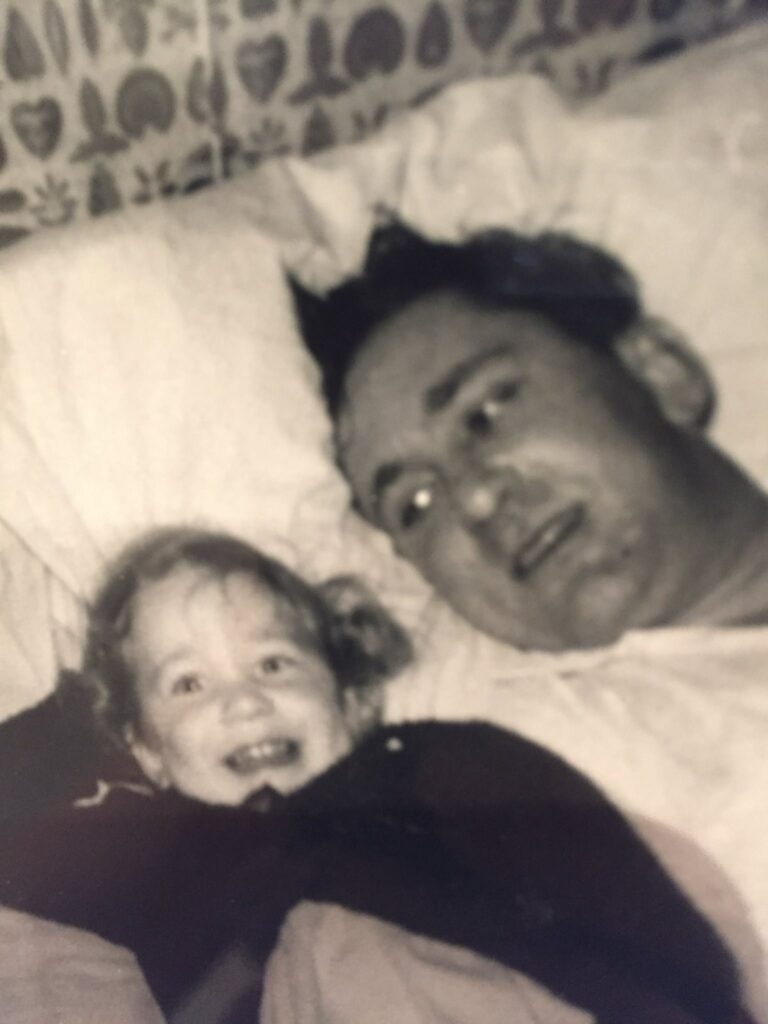Did your parents ever have “the talk” with you? No, not that talk… the menopause talk! For most of us, sadly, the answer is no.
As a father, you play a pivotal role in shaping your children’s perceptions of the world. As a little girl, I always held on carefully to my dad’s wise words. You can instill a strong sense of valuing women’s experiences in your children just by recognizing menopause does happen in the same way that we culturally acknowledge the emotional and physical hardships puberty causes across genders![ss_click_to_tweet tweet=”On #FathersDay, let’s discuss menopause. Dads, your support is crucial in understanding and supporting your loved ones through hormonal changes. Break the silence, have open conversations, and show unwavering support. ” content=”” style=”default”]
Imagine if your father had sat you down and explained the significant hormonal changes your mother was about to be or already going through. For one friend of mine, this was the case, and it significantly shaped the way perimenopause, menopause, and post-menopause were normalized for him as a young man.
Carve out a comfortable time, allowing space for an open-ended conversation, and use these tips to help you break open the conversation:
Discuss the stages of menopause. Before diving into educating your children, have a solid understanding of the different stages women experience. Perimenopause is the transitional phase leading to menopause, marked by hormonal fluctuations and irregular menstrual cycles. Perimenopause usually begins in your forties. Menopause is the natural cessation of menstruation for at least 12 consecutive months. If the period stops for six months and then starts again – one must stop the clock and begin again. A woman can get pregnant until she graduates to menopause. The average age of menopause is 51. Some women enter menopause before the age of 40. This is called premature menopause. Menopause that occurs between the ages of 40-45 is called early menopause. Lastly, post-menopause refers to the phase after menopause, when menopausal symptoms may diminish, but the risk of certain health conditions may increase.
Discuss the symptoms. Download my Menopause Mondays Symptoms chart. This chart will help you and your children understand the 30+ potential physical, mental, and emotional symptoms. For example, it’s helpful for your children to understand that mood swings, irritability, and depression can be symptomatic of hormonal changes. Often these symptoms are temporary. This knowledge can create a much calmer household. After all, seeing your parent upset can be upsetting![ss_click_to_tweet tweet=”Get my Menopause Mondays Symptoms chart for a comprehensive list of 30+ physical, mental, and emotional symptoms. Educate your children on how mood swings, irritability, and depression can be caused by hormonal changes. ” content=”” style=”default”]
What is causing symptoms of menopause? Touch on the hormonal changes women experience. As women transition into menopause, or the phase where their period stops, they can no longer become pregnant. The production of key female hormones, such as estrogen and progesterone, begins to decline irregularly. Many of the symptoms of menopause are due to decreasing estrogen.
Teach your children how to be supportive. Help your children not to personalize their mother’s changes in behavior but rather be empathetic about what she is going through. It’s easy for children to internalize trouble around them as their fault. There are many other ways to help. Healthy eating, exercising, and self-care can impact menopause symptoms. How about making healthy cooking and a walk or bike ride a family affair?
Educating children about perimenopause, menopause, and post-menopause is not a one-time conversation but an ongoing dialogue. Don’t be shy and join the convo. Encourage your other dad friends or partners who are fathers to advocate for menopause education and awareness. Use my MENOPAUSE MONDAYS® Blog as your menopause resource center.
By cultivating ongoing conversations, fathers can continue strengthening the bond of trust and understanding within their household. A strong family unit is worth celebrating!
P.S. If the menopausal woman in your life is currently not seeing a healthcare doctor who is trained and up to date in all things midlife, I have some great tips on how to find a menopause specialist. A menopause specialist will ensure she gets the proper help she needs and deserves!
P.P.S. This is my fav picture of me and my Dad.
Happy Father’s Day from Menopause Mondays®!
My Motto: Suffering in silence is OUT! Reaching out is IN!
If you want to educate your employees, colleagues, or friends about menopause, look no further! Book Ellen for your next event.
Sign up for MENOPAUSE MONDAYS® Blogs
Be sure to follow me on Instagram @menopause_mondays.
Follow me on TikTok @menopausemondays
Sign up for my fun YouTube Videos!
Download my free eBook: MENOPAUSE MONDAYS the Girlfriend’s Guide to Surviving and Thriving During Perimenopause and Menopause.
*EllenDolgen.com does not recommend, endorse, or make any representation about any tests, studies, practices, procedures, treatments, services, opinions, healthcare providers, physicians, or medical institutions that may be mentioned or referenced.





